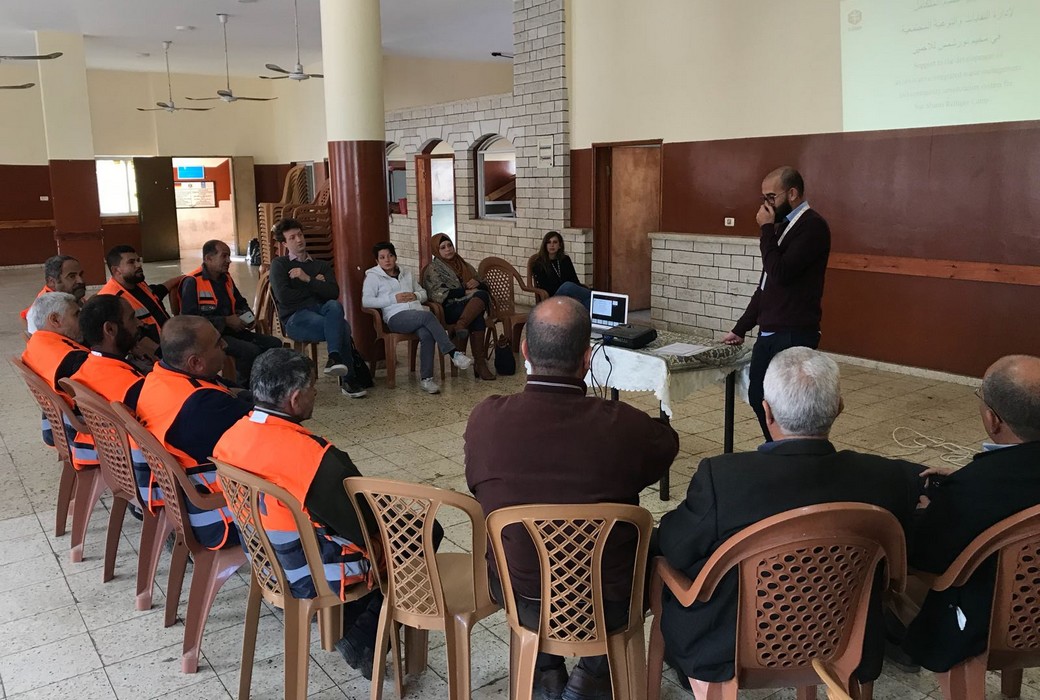In the Governatorate of Tulkarem, Cesvi works to improve the hygiene and health conditions in Nur Shams refugee camp.
The inadequate waste management puts the population’s health at risk, as it leads to harmful practices such as illegal waste dumping and burning. In many areas of the West Bank, there is no appropriate regulation and strategic planning regarding the waste collection system, and the situation is exacerbated by the overcrowding in the refugee camps.
Nur Shams Camp, located in the northern part of the West Bank, three kilometres east of Tulkarem City, has an estimated population density of 50,000 persons per sq km. Waste is collected through a door to door system with handcarts, which neither covers the whole of the camp nor collects the full amount of waste (4.5 tons per day). It is estimated that 31% of waste is burned or illegaly dumped.
With the aim of improving the poor conditions of Nur Shams resident people, Cesvi supports UNRWA – the agency which provides services in the camp – in the solid waste management. 9 UNRWA Sanitation Labourers (SLs) are responsible for waste collection and street cleaning, working under the direction of a Sanitation Foreman.
Between August and September 2017, Cesvi conducted an assessment on SLs working conditions in order to ensure the effectiveness of the system. After following the operational activities for 9 days, Cesvi staff asked the SLs to complete a questionnarie, whose results were discussed during a final meeting.
Among the main critical issues, the questionnarie pointed out the necessity of adopting new personal protective equipment for the SLs. Following a joint discussion, Sanitation Labourers, Sanitation Foreman, the central direction of UNRWA in Jerusalem and Cesvi staff identified the items to be provided to the SLs in order to make their work easier and safer.
The SLs were thus provided with 18 new kits of personal protective equipment – 2 for each of them –, which include gas masks and torches to facilitate the waste collection during night hours.
Kits were delivered on 5th of December. On the same occasion, Cesvi trained the SLs on the correct use of the new equipment, so as to reduce as much as possible the risks they face while working.
